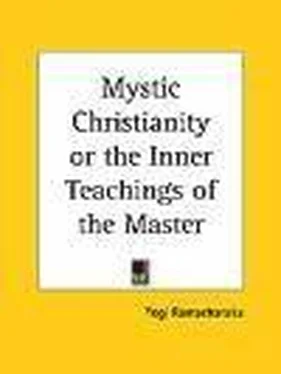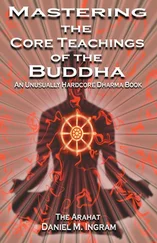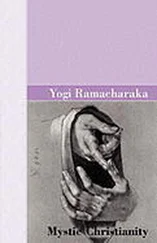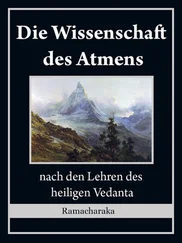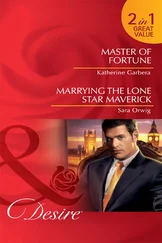And is not this connection of Astrology with Early Christianity a rebuke to the modern Christian Church which sneers and scoffs at the science of astrology as a "base superstition" fit only for fools and ignoramuses? Does not this picture of the Magi give a clear view of that which was formerly regarded as a mere fable, to be solemnly smiled over and taught to the children, with whom the story has always been a favorite owing to their intuitive perception of an underlying truth. And now with this Mystic version, cannot _you_ enjoy the legend with the children? In this connection let us once more quote from the New International Encyclopedia (Vol. II, 170), a standard reference work, as you know, which says:
"Some of the earlier Christian Fathers argued against the doctrines of the earlier astrology, while others received them in a modified form; and indeed it formed a part of the basis of their religion in the Gospel narrative of the visit to Bethlehem of the Wise Men of the East, who were Chaldean Magi or Astrologers."
Here is the testimony in all of the standard reference books, and yet how many of you have known it?
To understand the importance of the event which drew the steps of the Magi to Bethlehem, we must realize that the Coming of the Master was a favorite subject of speculation and discussion among Occultists and Mystic organizations all over the Oriental countries. It had been foretold, in all tongues, that a Great Master would be given to the world-a mighty _avatar_ or appearance of Deity in human form, who would incarnate in order to redeem the world from the materiality which threatened it. The Sacred Writings of India, Persia, Chaldea, Egypt, Media, Assyria, and other lands had foretold this event for many centuries, and all the mystics and occultists longed for the day "when the Master would appear." The Jews also had many traditions regarding the coming of a Messiah, who would be born of the seed of David, at Bethlehem, but their Messiah was looked upon as likely to be an earthly king, destined to free Israel from the Roman yoke. And so, the tradition of the Jews was regarded as of inferior moment to their own predictions, by the Mystic and Occult Brotherhoods of the East. To them it was to be an _avatar_ of Deity-God in human form come to take his rightful seat as the Grand Master of the Universal Grand Lodge of Mystic-a descent of pure Spirit into matter. This conception certainly was very much higher than that of the Jews.
And so, knowing these things, we may readily understand why the Magi pursued their search with such ardor and enthusiasm. They had many weary miles of travel to Bethlehem, over a year being consumed in the journey. They reached Bethlehem over a year after the birth of Christ and the appearance of the Star, the sight of which had started them on their quest. They sought not a new-born babe, as common belief has it-they searched for a child born over a year before. (We refer the student to any reference work, for a verification of this last statement. The illustrations in the Sunday school books showing the Wise Men worshipping a new born babe in the manger are on a par with the others mentioned. The Wise Men had nothing to do with the stable or the manger-for Joseph, Mary and the Babe were lodged in a house by that time, as we shall see as we proceed.)
At last after their long and weary wandering over hill and plain, mountain and desert, the Magi found themselves in Jerusalem, inquiring diligently as to the whereabouts of the Master of Masters-the Promised One, whose coming had been the subject of prophecy for centuries among the Eastern peoples. The Jews of whom they inquired, although not familiar with the predictions regarding a Mystic Master, or _avatar_ of Deity, were nevertheless thoroughly familiar with the prophecies of the coming of the Hebrew Messiah, and naturally thought that it was of this expected earthly King of the Jews that the Magi inquired, and so they reported it far and wide that these Great Men from the East had come to Jerusalem to find the Messiah-the King of the Jews, who was to deliver Israel from the Roman yoke. And, as the Gospel of Matthew (2:3) informs us: "When Herod the king heard it, he was troubled, and all Jerusalem with him." Naturally so, when it is remembered that it was an Earthly Kingdom that they expected the Messiah would inherit. And so, gathering the chief priests and scribes of Jerusalem around him, he bade them tell him the particulars regarding the prophecies regarding the Messiah-where he was expected to be born. And they answered him, saying: "In Bethlehem of Judea for so hath the prophets spoken."
And hearing the testimony of the scribes and priests, the wily Herod, who feared the realization of this old Hebrew prophecy which threatened to cost him his throne if fulfilled, called the Magi to his palace and in private consultation inquired of them the reason of their search. And when they told him of the astrological indications-of the "Star"-he was still more wrought up, and wished to locate the dangerous child. And so he inquired of them the exact date at which the star had appeared, that he might be better able to find the infant, knowing its date of birth in Bethlehem. (See Matthew 2:7.) And learning this he bade them go to Bethlehem and find the child they sought, and cunningly added, "And when ye have found him, bring me word, that I also may come and worship him." Thus craftily concealing his intentions to seize and kill the child, he endeavored to press the Magi into his service as detectives, by pretending to join in their desire to locate the Divine Child.
The Magi traveled on to Bethlehem, and arriving there made diligent inquiry regarding infants that had been born about the time that the star appeared. There were many infants born in Bethlehem during the same month, of course, and the search was difficult. But they soon heard strange rumors about a babe that had been born to travelers in Bethlehem about that time, the birth of whom had been attended by a strange occurrence. This peculiar happening is related in Luke 2:8-20, in which it is stated that at the time of the birth of Jesus in the manger, certain shepherds keeping the night-watch over their flocks saw an angel standing by them, and "the glory of the Lord" shining around about them. And the angel bade them be not afraid, for to them was to be given tidings of great joy, for there was born that very day, in Bethlehem, one who was to be the Anointed Lord of the world. And the angel further directed them that the babe would be found lying in a manger in a stable, wrapped in swaddling clothes which was to be their sign. And then suddenly the place was filled with a multitude of supernatural beings, praising God, singing, "Glory to God in the highest, and on earth peace and good-will among men." And the shepherds flocked to the town, and there found the child in the manger. And they spread abroad the report of the wonderful event accompanying the birth of the child. And consequently the child and its parents became objects of more or less public interest.
And so when the Magi instituted their search they were in due time informed of this strange occurrence. And they visited the house of Joseph and Mary and saw the Babe. Making close inquiry of the parents, they found that the time of the child's birth tallied precisely with the moment of the astrological signs. Then they cast the Child's horoscope and they knew that their shepherd's vision coincided with their own science, and that here indeed was He for whom the Eastern Occultists and Mystics had waited for centuries. They had found the Master! The Star Child was before them!
Then these Great Men of their own lands-these Adepts, Masters and Hierophants-prostrated themselves on the ground before the child and gave him the salutation due only to the great Occult Master of Masters who was come to take his seat upon the Throne of the Grand Master of the Great Lodge. But the child knew naught of this, and merely smiled sweetly at these strange men in gorgeous foreign robes, and reached out his little hand toward them. But Occult tradition has it that the tiny fingers and thumb of his right hand, outstretched toward the Magi, unconsciously assumed the mystic symbol of the Occult Benediction, used by the Masters and Hierophants (and now used by the Pope in Papal Benediction) and gave to the worshippers that Master's benediction. The tiny Master of Masters thus gave his first blessing to his followers, and exalted worshippers. But His Throne was not that of the Great Lodge, but a still higher place-the knees of a Mother!
Читать дальше
